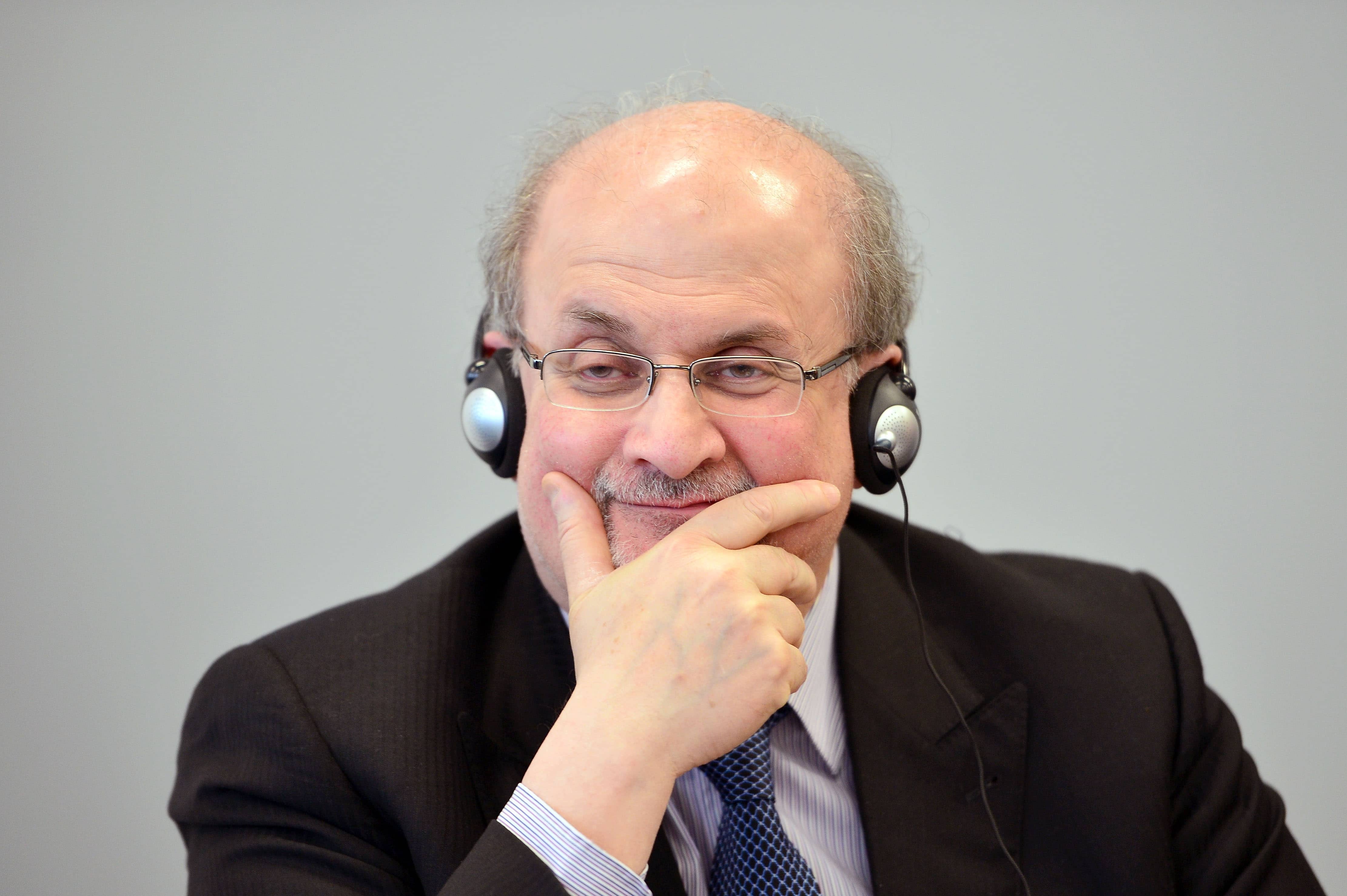When I met Salman Rushdie in New York a couple of years ago, he told me that the days in which he feared physical attack were long behind him. ‘It only affects my life when I talk to journalists,’ he said, a little pertly. ‘It is 20 years since I required any form of protection. I go everywhere I want.’ That was true, and not true. It was obvious to me – and, Sir Salman being no fool, will have been even more obvious to him – that thirtysomething years after the philistine clerisy of Iran sentenced him to death, there was nothing to prevent a lone nutter making an attempt on his life. And it looks like that is exactly what has now happened.
The reason he denied something so obvious is that he didn’t want it to define him. He didn’t want it to be the main thing anyone ever talked to him about in interviews. What was there to talk about? The fatwa had not killed him as a man. Was it to be allowed to kill his books – pigeonholing him as an ‘arcane religious heretic’ whose long and protean literary career would be the footnote to a political controversy in yellowing newsprint? That would be the real victory for the mullahs. Heine’s saying that ‘where they burn books, they also will ultimately burn people’ is an acute one: burning people is a last resort; what they want to kill is the ideas. That he’s now reportedly awake in hospital and in possession of his senses won’t just be a relief to those who know and love him as a friend: it’ll be a relief to those – Sir Salman first among them – who don’t want variations on ‘murdered by a fanatic’ to be in the top ten paragraphs of his obituary.
Death threats have become part of our everyday discourse rather than shocking aberrations
Those who haven’t read Rushdie, thanks to his reputation being so overshadowed by the controversy, will not know how generous and macaronic and unpompous a writer he is. They won’t know (as Edward Said did) that The Satanic Verses is ‘not a dour, unsmiling sermon but a riotous carnival’. They won’t know that his first novel, Grimus, was an honest-to-goodness work of science fiction (woven through a medieval Sufi fable); that his subsequent novels have mashed pop culture ephemera with styles and mythologies from South America and the Indian subcontinent; that he writes about road trips and cartoons and reality TV and has Dickens’s love of silly names; that he’s ‘good alike at grave and gay’; that he’s one of those writers flamboyant enough to risk falling flat on his face; that he’s an absolute tart for a silly joke.
Is there anything unobvious to say about the matter of The Satanic Verses by now, anyway? Christopher Hitchens put it this way many years ago: ‘It was, if I can phrase it like this, a matter of everything I hated versus everything I loved. In the hate column: dictatorship, religion, stupidity, demagogy, censorship, bullying, and intimidation. In the love column: literature, irony, humour, the individual, and the defense of free expression.’ I don’t see what more needs to be said. The last few days have seen the usual high-minded invocations of Voltaire, though, freshened by jejune attempts to cram the take into some pre-prepared culture-war template. Cancelling ‘Drag Queen Story Hour’ is just like the ayatollah. No: Rushdie’s persecutors were just like students insisting on ‘safe spaces’ at university. No: saying J K Rowling deserves to be murdered is totally different from calling for Salman Rushdie to be murdered because one is ‘punching up’, okay?
What seems to me to be worth considering is not the free speech principles at stake (I’m assuming on an Occam’s Razor basis, though I may be wrong, that Sir Salman’s attacker was motivated by animus against The Satanic Verses), which haven’t changed. It’s the way in which the threat on his life was able to hang about, like a virus in the blood of the culture. If you were going to incite murder, back in those innocent pre-internet days, you had to be pretty direct. The Ayatollah certainly was. And, as Rushdie noted wryly, the fatwa against him had to be disseminated by fax. ‘The fax machines they used against me,’ he has said, ‘is like a bicycle rather than a Ferrari compared with the internet.’ Rushdie’s attacker had not even been born when The Satanic Verses was published. That bicycle, somehow, wobbled through into the age of the Ferrari.
It’s not how similar Rushdie’s original situation was to our own, then, that’s striking. It’s how different it was. Death threats have become part of our everyday discourse rather than shocking aberrations; and they’re disseminated not through the arteries of the mainstream media but through the billion capillaries of our new social networks. The language of them has changed too. The original virtue of rhetoric was that it provided an alternative to violence: in democracies, power would be exercised through words rather than through force of arms. That distinction can no longer be made in the same way.
Now, you no longer need directly to enjoin violence knowingly to cause it. You just need to mark somebody as an enemy in such a way that enough of your ideological allies will see it – and there’s a decent chance, if you have a large enough platform, that someone among them will be deranged enough to take violent action. You just share where they live or work, or enjoin a crowd to peacefully protest their event, and – well, whatever happens next surely isn’t on your responsibility. You don’t have to set a fire. You just fill the room with petrol fumes and wait for someone else to light a cigarette.
That’s the issue at the heart of the 6 January investigation in the US: was a president enjoining his crowd of armed followers to ‘fight’ for their country to be taken? It’s an issue that bears on the damages awarded against Alex Jones for ‘just asking the question’ about whether the Sandy Hook massacre was real: a supposedly abstract inquiry issued in the in-person harassment of grieving parents. And it’s the issue with the targeted harassment by supposedly progressive mobs of conservative thinkers and speakers too. It’s not a question of being something ‘their side’ does. It’s the air we all now breathe. It smells of petrol.
This article is free to read
Subscribe and get your first month of online and app access for free.









Comments
Join the debate, free for a month
Be part of the conversation with other Spectator readers by getting your first month free.
UNLOCK ACCESS Try a month freeAlready a subscriber? Log in